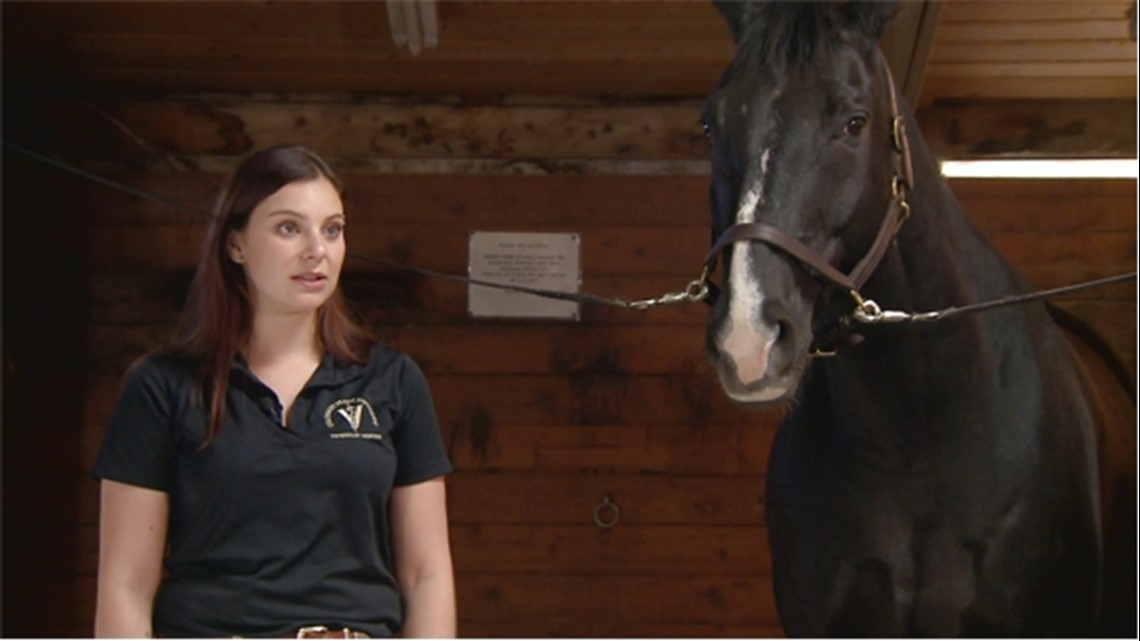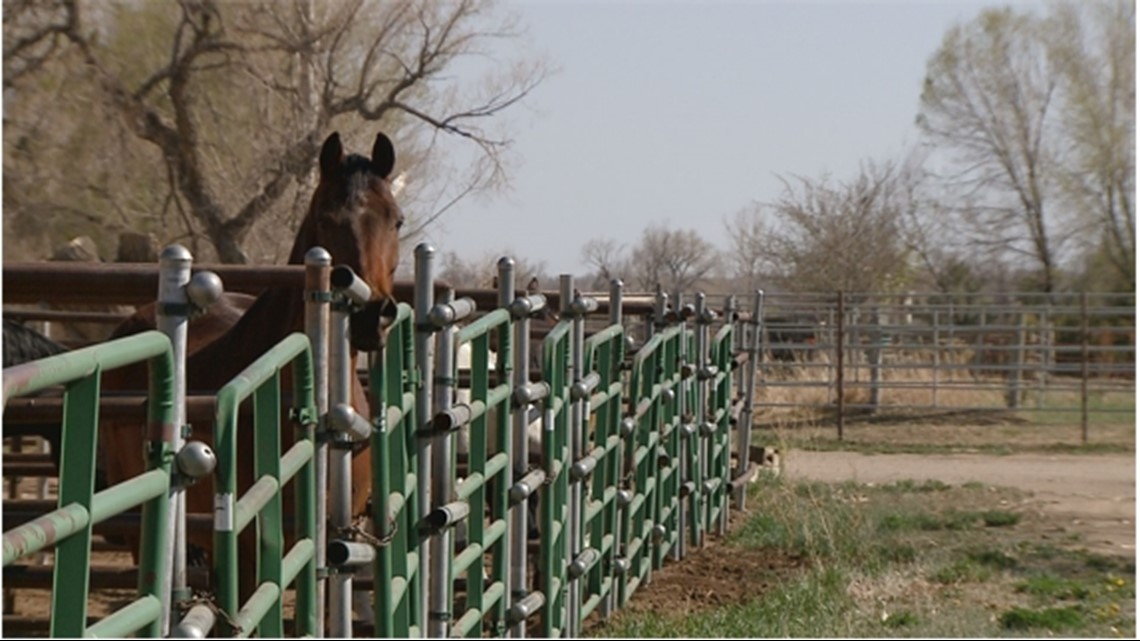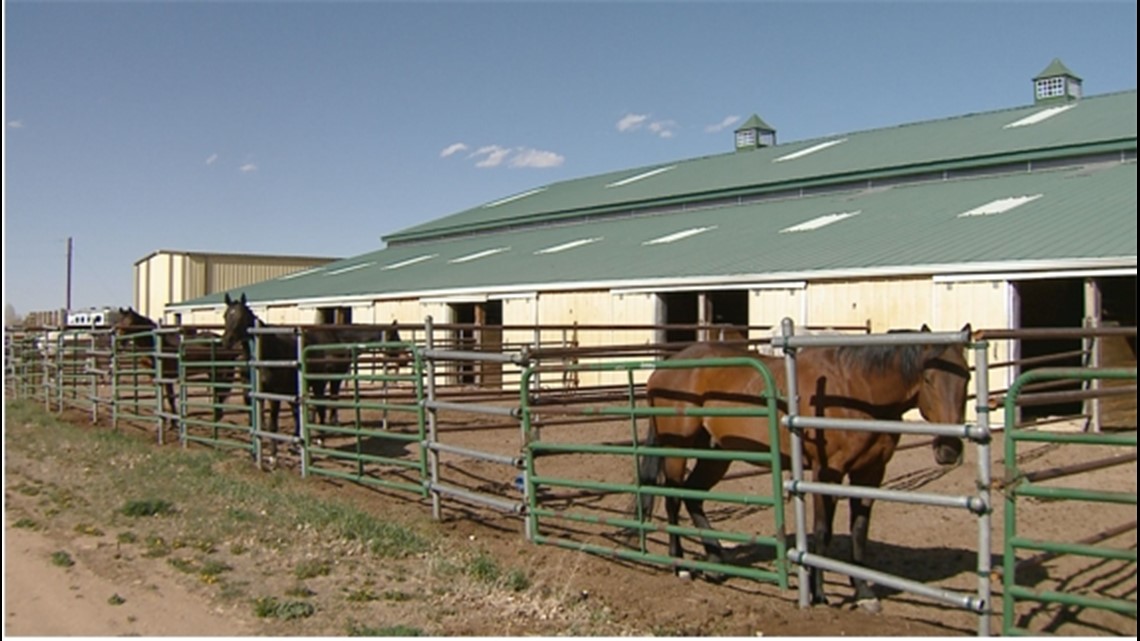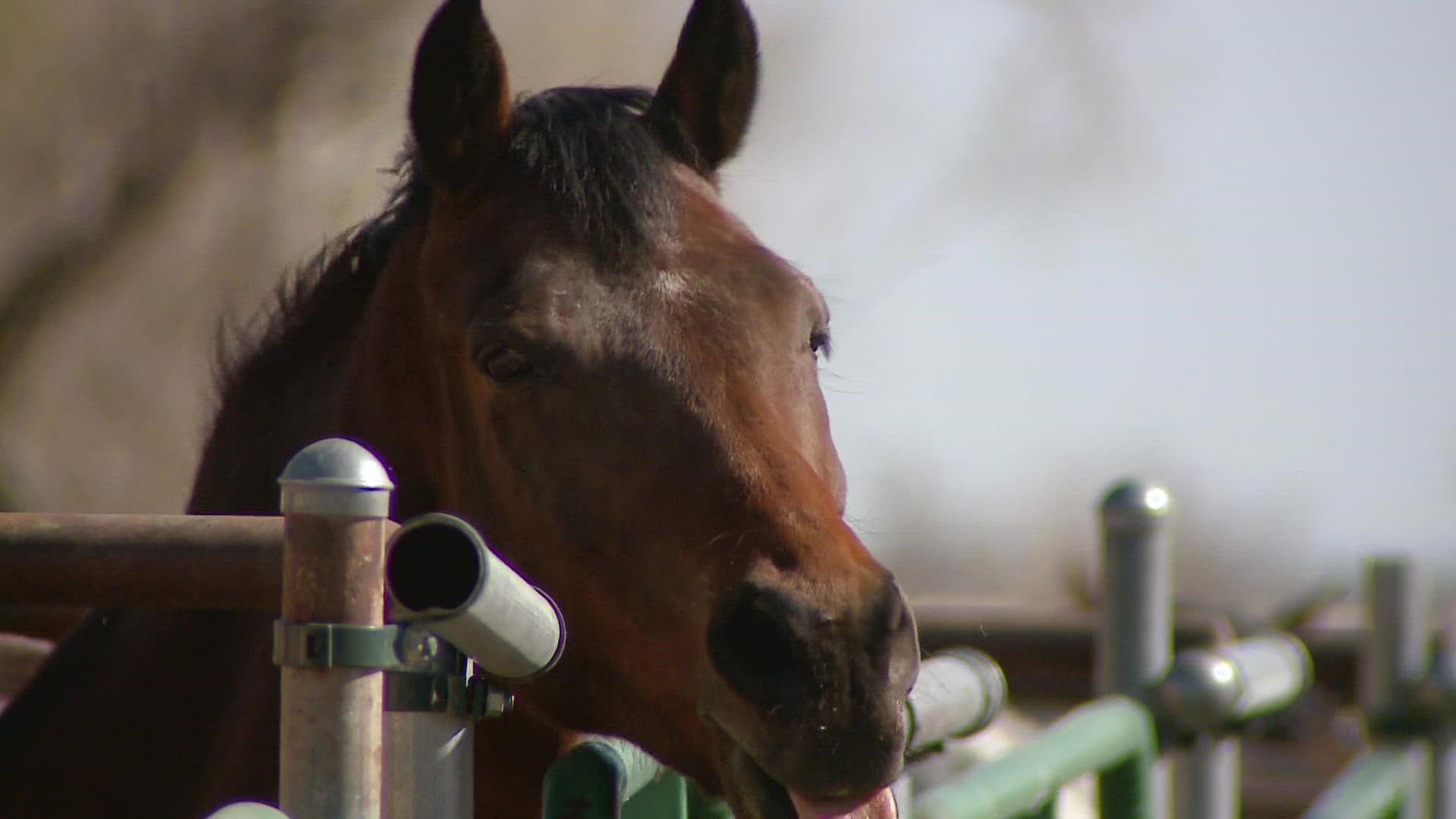FORT COLLINS, Colo. — If you ask Caroline Wollman about her "happy place," she may tell you about a horse stable in Fort Collins.
The big part in that of course, is due to who she calls her best friend, a horse named Cody.
"And he came from the East Coast with me out to Colorado because I was living out there before," she said. "And we've kind of grown up together, he came to college with me, he's now at that school with me, obviously, and we've gone through a couple injuries together, both his and mine."
But the third-year veterinary student at Colorado State University noticed something wrong with him last year.
"I noticed one day that he wasn't moving quite right. He seemed like he was limping. And after going through the process of diagnostics and testing with the veterinarian that I use, we discovered that he had a neurologic condition," she recalled.
Further testing revealed that Cody had Equine Herpesvirus, which in some cases can be fatal to horses depending on the strain, according to the American Association of Equine Practitioners (AAEP).


Despite six months of rehab and treatment leading to Cody's recovery, it was then that Wollman acknowledged something.
"I realized that disease, infectious diseases really, can happen to anyone, including the vet student who spends a lot of my free time working on infectious disease things," she said.
The realization strengthened her desire to further a project she had already been working on for around a year at the time of Cody's illness; a website that puts all of the resources needed for horse owners and barn managers in one place.
"There was a lot of information online, but a lot was targeted at horse shows and traveling to events and things like that, which is a big opportunity to catch diseases. But I didn't feel like there was the comprehensive aspect. Everything being on one website really easy to access," Wollman explained.


Meeting a demand
The website has been up since February and is a place horse owners and barn managers can look to for guidance on a plethora of topics when it comes to caring for horses.
There is an emphasis on what's called "biosecurity."
Wollman defines that as the practices used to prevent infections and diseases from affecting animals and humans.
The tabs in the website lead to PDF files from official organizations.
For instance, under the "Horse Health" section, for "Horse Owners," one can be lead to a page on the AAEP's website for "Signs of a Healthy Horse."
The website also provides guidance for quarantine procedures, transporting horses, inspections for horses, including resources for how to check a horse's vital signs and more.
"It is just a, as we say, comprehensive resource for horse owners like me, like everyone else at this farm who has one or a couple of horses, but also the barn managers, the people who own farms like this and are managing day to day," she said.


Mobility matters
Wollman explained that they wanted to emphasize with the website is that users are able to open it on their phone.
"Have it with you at the farm, and have that be a resource. When you're walking around, you're seeing like, Hey, our farm is doing a really great job with this. We probably could improve in this way though, and you have that right there," she said. "And it gives really actionable things that you can do and fix and improve on the farms and personally and how you're interacting with your horse and other horses to keep everyone safe from these infectious diseases."
The website was firste worked on at a summer internship, with the help of her mentors through Colorado State and the USDA.
Overall, the goal is to make sure that other farms start doing as many things as they can to keep horses safe, Wollman said.
SUGGESTED VIDEOS: Latest from 9NEWS

